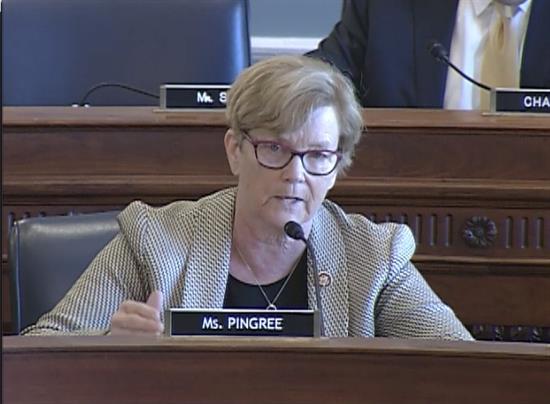Press Releases
Pingree Requests GAO Investigation of PPP Loans to Publicly Traded Companies
Washington,
May 11, 2020
Congresswoman Chellie Pingree (D-Maine) today joined 29 of her House colleagues in requesting that the U.S. Government Accountability Office (GAO) investigate the allocation of loans from the Paycheck Protection Program (PPP) to large, publicly traded companies. A copy of the letter is available here. “Recent reports indicate that nearly 300 publicly traded companies, some worth more than $100 million, received PPP loans. This program should never have been a series of corporate bailouts—it was intended to lift up small businesses like the ones across my home state of Maine,” said Pingree. “Congress has constitutional oversight over the programs we authorize, and I believe we must do everything within our power to ensure these funds go to the small businesses that need it most.” The Paycheck Protection Program, managed by the Small Business Administration (SBA), was created to help small businesses to weather the current pandemic. Businesses are generally eligible if they have 500 or fewer employees, but waives affiliation rules to allow loans to certain businesses with more than one physical location. The letter asks GAO to answer a series of questions, including the number and size of such loans and SBA’s process for prioritizing applications and changing procedures in response to the publicly traded companies’ access. There is currently no requirement for companies to publicly disclose if they’ve received PPP. Pingree has signed on in support of legislation from Congresswoman Katie Porter (D-Calif.) that would require SBA and the Treasury Department to make PPP data public, including date, recipient, loan amount, employee count, tax status, minority/veteran status, and executive compensation. Today the Wall Street Journal reported that the SBA’s Inspector General found the agency failed to adhere to several key components of PPP’s implementation, including requirements to aid underserved and rural markets like the ones found in Maine.
### |


